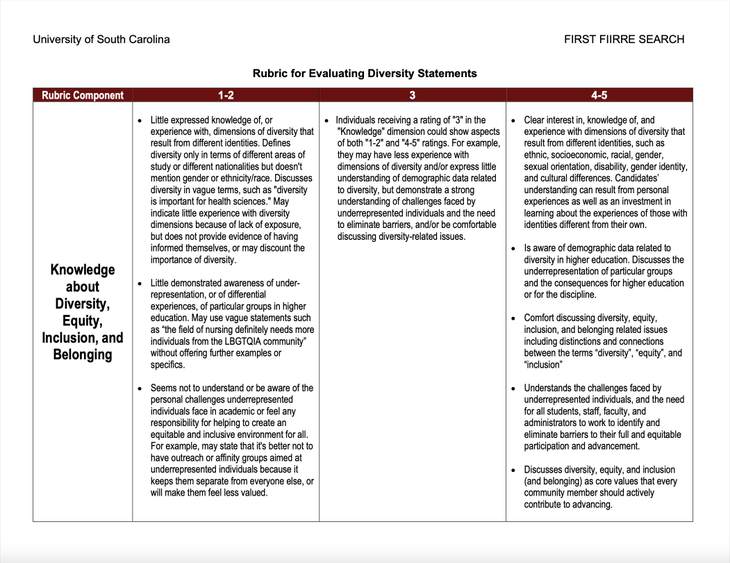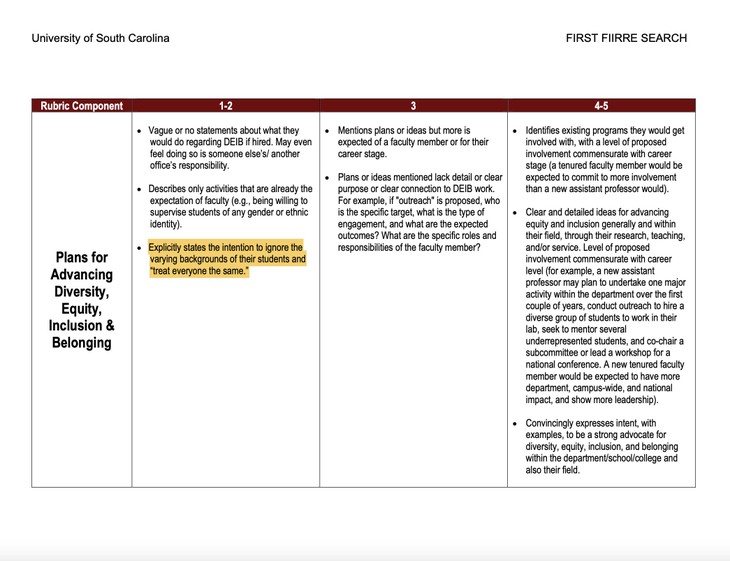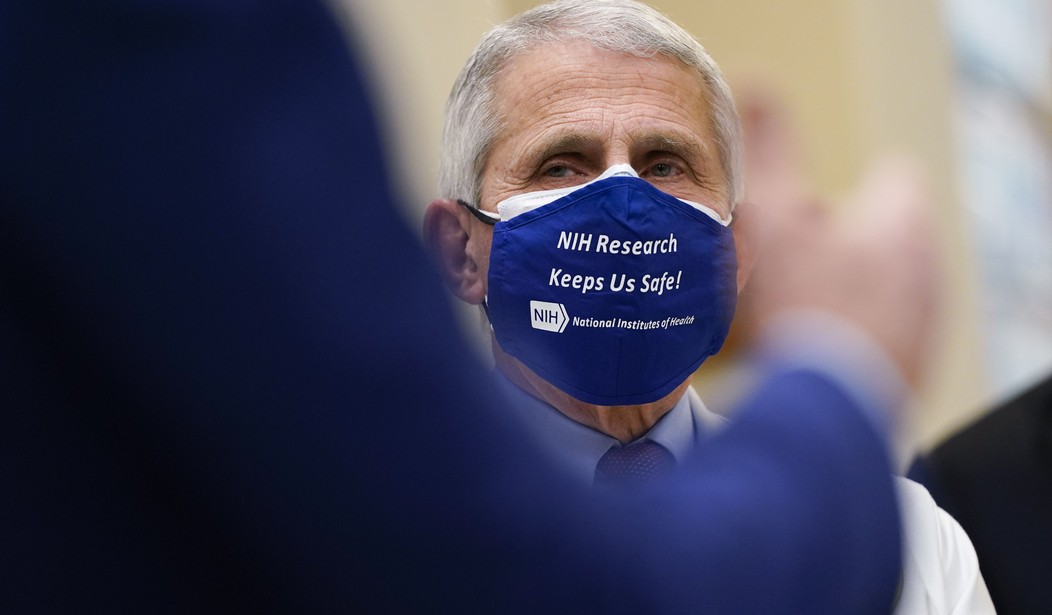Governor DeSantis’ war on DEI in Florida is a good start, and other Republican politicians are following his lead.
But the fact is that the civil rights battle against racism and segregation can only be effectively fought at the national level. We need a president willing to fight the battle against the new racial essentialists who have taken the cultural high ground.
The basic problem is simple: even if we could convince every state leader and every bureaucrat in the country, outside the federal government, the momentum for DEI would continue.
Why? The federal government has the money and the enforcement mechanisms to force this abomination on everybody.
The examples of this are numerous, but one of the least well known but most egregious is the National Institutes of Health program to reshape our medical research and teaching along racist lines.
In 2020, the NIH created a program designed to give 12 institutions $241 million for DEI-focused faculty hiring.
To be hired through the program, candidates must submit a diversity statement and demonstrate “a strong commitment to promoting diversity and inclusive excellence.” pic.twitter.com/XqrysCIHpl
— John Sailer (@JohnDSailer) March 1, 2023
There was a brief period in US history when the government tried to banish racial considerations from government policy. It was a fine goal but apparently doomed to fail.
While Republicans have not always had clean hands on racial policies, on the whole, it has been Democrats who have focused on using race in setting government policies.
The Democrats’ obsession with segregation has been a constant throughout the life of the Party, although there was a dramatic shift in the justification for the practice. Until the 1960s and 70s the Democrats demanded racial segregation in order to ensure that Blacks were prevented from enjoying the benefits that Whites enjoyed in society. Sometime in the 1970s the Party changed its justification for racially divisive policies, claiming that racially motivated policies would rectify the harms inflicted on Blacks by their prior policies.
There was a brief period of time when Democrats actually advocated for race neutrality, but as with a pendulum swinging the period was brief before the weight swung all the way to the other side, where it is now.
A feature of the Administrative state under which we now live is the near irrelevance, most of the time, of the particular party in power in most cases. Some major policies can change, but for the most part, the bureaucracy chugs along doing whatever it wants to.
The Democrats, being the party of government, basically run the government save for those few items that get special attention from the president or his political appointees.
This is how the NIH program to promote segregation and racism in medical schools and universities was promulgated under the administration of Donald Trump. Despite the fact that Trump undoubtedly would not have approved such a program, his attention was elsewhere and the Leftists who run our government most of the time got what they wanted.
And what they wanted was this: a massive, quarter-billion-dollar program to reshape our biomedical infrastructure along the lines that DEI requires.
The day after the Journal published my article “How ‘Diversity’ Policing Fails Science,” which exposed how Texas Tech University used job applicants’ diversity statements as ideological litmus tests, the university announced it would end its use of such statements for faculty hiring. Other universities would be well advised to follow Texas Tech’s lead. But it is unlikely they will. The federal government is spending nearly a quarter of a billion dollars to promote the practice Texas Tech jettisoned.
In 2020 the National Institutes of Health created the Faculty Institutional Recruitment for Sustainable Transformation program “to enhance and maintain cultures of inclusive excellence in the biomedical research community.” The program will give 12 institutions a total of $241 million over nine years for diversity-focused faculty hiring. Under the terms of the grants, only candidates who demonstrate “a strong commitment to promoting diversity and inclusive excellence” can be hired through the program. To apply, candidates must submit a diversity statement.
Now there is nothing inherently wrong with a “commitment to promoting diversity and inclusive excellence.” In fact, that sounds pretty good to me. Taken on its face it probably sounds good to just about everybody.
Except by now, we all know exactly what this means. Downplaying excellence and focusing exclusively on racist ideology. “Diversity” is a codeword these days, and everybody knows it.
Given today’s litigious environment, how is it possible to implement obviously illegal racial and ideological requirements for hiring?
Euphemisms.
The South Carolina and New Mexico rubrics call for punishing candidates who espouse race neutrality, dictating a low score for anyone who states an “intention to ignore the varying backgrounds of their students and ‘treat everyone the same.’ ” Applicants who are skeptical of DEI programming might choose to describe their commitment to viewpoint diversity. This too runs afoul of the rubrics, which mandate a low score for any candidate who defines diversity “only in terms of different areas of study or different nationalities but doesn’t mention gender or ethnicity/race.”
The rubrics likewise punish candidates for failing to embrace controversial diversity practices. They recommend low scores for candidates who “state that it’s better not to have outreach or affinity groups aimed at underrepresented individuals because it keeps them separate from everyone else, or will make them feel less valued.” These affinity groups exemplify a new kind of segregation, but expressing that view could imperil an applicant’s career.
More broadly, the rubrics reward candidates who describe diversity, equity and inclusion as “core values”—something not all prospective faculty members can do in good faith. After all, standard diversity training sessions describe “equity” as the attainment of equal outcomes through policy, not equality of opportunity. The University of South Carolina’s program seeks experts to study health disparities—that is to say, inequalities. The scholar most capable of doing such research could be disqualified for simply saying he strives to treat students equally.
Note the language here: there are actually scores attached to each requirement, ensuring that there is some quantitative justification on top of the ideological requirements.
“We aren’t being racist: we are scoring candidates based upon the requirements of the grant.”
There are just two of the many scoring pages, and as you can see the more ideologically you are committed to racism the higher your score. The higher the score, the more likely to get hired.
Nobody with a low score will get hired, so the upshot is: you must know DEI ideology backwards and forewards in order to get a job.


Obviously it is no longer surprising to find that the federal government is promoting these divisive and destructive ideologies, but it bears noting that these policies have extended to the core STEM fields, including health care and biology.
It is now at least as important to be able to mouth the tenets of DEI and prove one’s fealty to this ideology as it is to have a proper grounding in biological sciences, thanks to the National Institutes of Health.
Is it any wonder that our public health policies are in such a shambles? It is this sort of nonsense that our bureaucrats are putting their efforts into–remember, these policies were put out at the height of the pandemic–rather than focusing attention on the core competencies we expect of scientists.
As a practical matter it would take a degree in ethnic studies and several courses on Marxist ideology to score highly, leaving less time for actual scientific education.
It will take a concerted effort by an engaged president to even begin to root out the segregationists from government bureaucracies, and a second effort to reverse the rot that has invaded our colleges and universities.
So let’s get started. Governor DeSantis has shown the way.







